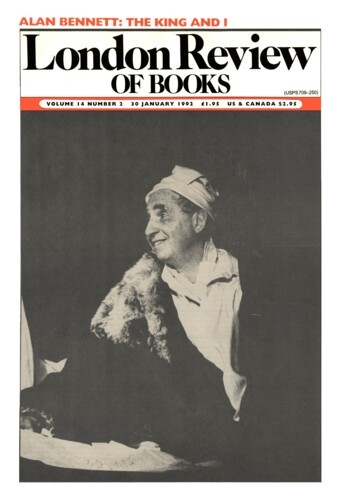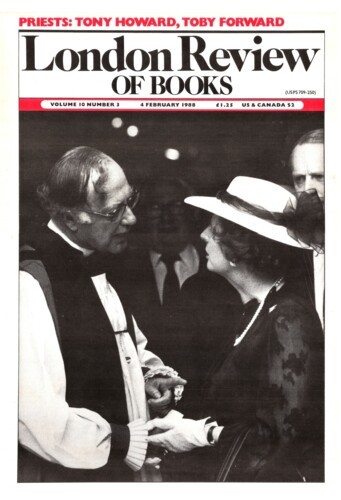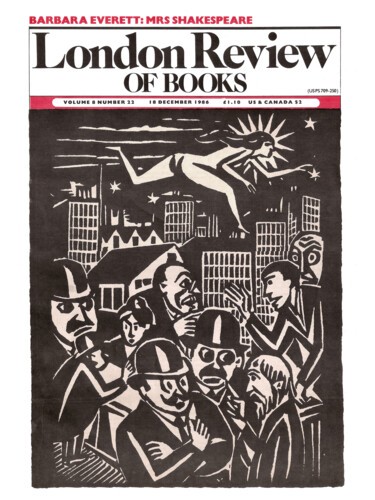That Old Thing
A.N. Wilson, 30 January 1992
The Pope is the most interesting public figure in the Western world, because, among all the presidents and premiers who exercise power from Washington to the borders of the old Russian Empire, he seems to be the only figure guided by a sense of history. The Euro-ideals of Kohl, Mitterrand, Major and the rest are based on the presumption that it is more polite to behave as if the past had never happened: the Third Reich, the Pétain regime in France and the near-anarchy which followed it; the forty years when Spain kowtowed to the Generalisimo; the equally long period of happy fascism in Portugal; the ups and downs of Italy before, during and after the revival of the Roman Empire under the Duce; the Athens of the Colonels – these are not easy years for democrats to remember. And it is not surprising that the Delors plan seems attractive to those whose political history is so shady.



